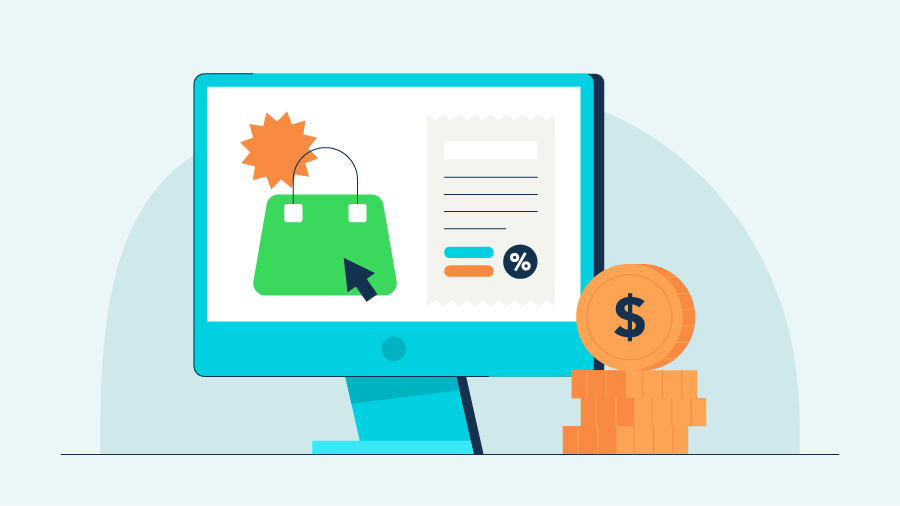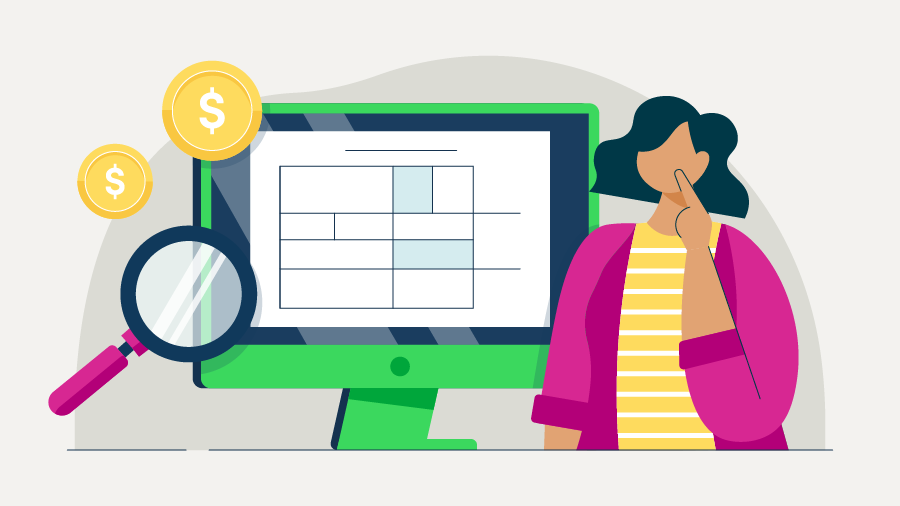As an entrepreneur or a small business owner, it’s in your best interest to be aware that your personal credit can affect your ability to secure a business loan or other types of financing.
Many lenders—especially financial institutions—review personal credit scores as part of their decision on whether to grant a loan. To many lenders, your credit score reflects how well you handle money and if you’re responsible and trustworthy enough to be lent the loan you need to make your business a success.
There’s a lot to keep in mind, as you find the right business loan and understand whether your personal credit will take a hit in the process. Let’s break it all down.
What is personal credit?
Personal credit is what an individual builds by showing they’re trustworthy and responsible by paying their bills in full and on time. Bills like credit card payments, car loans, mortgages, student loans, and more all have a “due by” date, and when someone pays their bill on time, it increases their credit standing.
Your personal credit line is connected to you by your Social Security Number (SSN). Three major credit bureaus curate the credit history that you build over time:
- Equifax
- Transunion
- Experian
You'll have one profile with each of these major bureaus. Remember, your personal credit should remain separate from business credit in a dissociated business bank account.
How is personal credit calculated?
For business owners, personal credit is important, and maintaining a good personal credit score should always be top of mind. No matter how long your business has been around, and how much information is available for others to know, lenders will also look at your personal financial history and your credit score.
This is especially true for early-stage companies, which have been around for less than a year because they haven’t established a track record or a comprehensive business credit score. So traditional lenders, such as credit unions and banks, will rely on your personal credit score to indicate if your business is trustworthy, too.
Because these lenders will rely on your personal credit score when considering if you qualify for a small business loan, it’s essential to know how to calculate it. The credit scoring models will look at how late payments have been in the past, how much was owed, if you’ve ever missed a payment and, if so, how often payments are missed.
All three major bureaus use the same scale from 300 to 850 to rank your credit, but the scores usually vary a bit.
The formula is calculated by:
· 35% payment history: Bankruptcy, repossessions, late payments, and settlements will reduce your credit score.
· 30% amounts owed: Consists of the amount owed across different types of accounts and the amount paid down on installment loans.
· 15% length of credit history: Consists of the average age of the accounts on your report and the age of the oldest account.
· 10% type of credit used: How well you manage different types of credit, such as a mortgage.
· 10% new credit: How often you apply for things like new credit cards or other revolving loans could hurt your credit score.
Where can I obtain my latest personal credit score?
If you’re unsure of your personal credit score, there are certain ways to find it. One way is to contact any of the three bureaus listed above. Every 12 months, you’re entitled to a free copy of your credit score by going to the annual credit report website.
If you have a credit card, some cards will include your credit score on your monthly statement or in the app on your phone. For example, if you have a Discover credit card, you can check your FICO score directly on their mobile app and see the length of your credit, any missed payments, inquiries, and more.
If you notice any irregularities on your credit report, you may be a victim of fraud. While most people are in control of their own finances and ultimately responsible for their financial decisions, different types of identity theft can occur and wreck your personal credit, impacting your ability to secure a business loan.
Most people are shocked to discover their identity was stolen and credit scores were destroyed many years later, when they apply for a loan and get denied. Many young adults find out their identity was stolen when they were still a child, ruining their credit scores for most of their lives.
There is a great guide we recently published on the QuickBooks® blog titled How you can help protect your business from fraud, which is a good resource to refer to for additional ways to protect your credit, finances, and beyond.
Do business loans show up or affect your personal credit score?
Put simply, yes. Taking out a business loan can affect your personal credit.
Over time, a business will incur debts from loans, overdrafts, credit lines, and business credit cards. And if you’re the sole proprietor of the loans, there’s a good chance that you’re the one responsible for repaying the loan.
If you personally guarantee a business loan and you run the partnership, your finances will be affected, and your credit score will dip if your business delays payment on the loan.
Here are the three factors to consider regarding if a loan will affect your credit:
- The structure of your business: Are you the sole trader? If not, are you the lender?
- The type of business loan you get: Have you used personal assets to secure the loan? Did you personally guarantee the loan?
- How you handle the loan: If your company ever defaults on the loan, you could face bankruptcy.
Situations where loans affect personal credit score
Let’s discuss some instances where business loans do affect your personal credit score.
Since there are different types of business loans your company can have, there are varying effects on your credit score.
More often than not, most business loans will impact your credit if you personally guarantee a business account. This usually happens, especially when starting a small or new business. It’s also common with sole owners and partners. A lender will report a defaulted business loan onto personal credit reports in these cases.
Additionally, if you use personal credit to fund your company, this will impact your score. If you use personal loans, such as a home equity loan, to finance your company, you’ll see it in your credit score.
Situations when they do not
Since this isn’t always the case, let’s explore situations when it doesn’t impact your credit score.
Keeping your business finances completely separate from your personal ones won’t impact your credit. Additionally, business loans from incorporated companies are unlikely to affect personal credit. Incorporated entities such as LLCs, C corporations, and S corporations have their own corporate identity. And if you’re simply a shareholder, you’re not liable for any business debt and whether it’s paid on time, or at all.
Another way that a business loan won’t impact your credit is if your company has a business credit card. When you’re an authorized card user, it won’t appear on credit reports. Finally, a business loan won’t affect your credit if you only provide an employer identification number (EIN) during the loan application. This is because a lender can’t hold you liable if you sign anything that doesn’t request your official name and social security number (SSN).
How do business loans affect your credit score?
A business loan will affect your personal credit when you guarantee it personally. If this is the route you take, your business must make payments toward the loan balance on time and on a regular schedule.
If you agree to a loan that’s personally guaranteed, you should always know the terms of the loan and be able to pay the loan, regardless of if your business is successful or what your cash flow looks like.
To put it simply, if you pay your loan on, or before, its due date, and you never miss a payment, your credit score won’t be affected. However, if payments go missed or are frequently late, your line of credit will start to suffer and fall … fast.
Do business bank accounts and credit cards affect personal credit scores?
Suppose you open a business bank account, especially at a top financial institution such as Chase, Wells Fargo, or Bank of America. In that case, it’s essential to know they will only run a soft inquiry on your credit, so no, it won’t impact your personal credit score.
If you open a business credit card, yes, it can impact your personal credit score. Small business owners should keep in mind that business credit card activity shows up on their credit reports— it’s viewed as the same as any other credit card debt, in terms of scoring methods. Data from the business credit card account will affect factors such as your length of personal credit history, payment history, and credit utilization.
Opening a business credit card will likely affect your personal credit score in three ways:
- The credit inquiry when you apply. After applying for a business credit card, the card issuer may consider your business’ track record and your personal credit. If they run a hard credit check on your credit, it could cause your score to drop a few points. Additionally, most card issues require entrepreneurs to sign a personal guarantee, meaning if your business defaults, you’re still on the hook for the debt.
- Your ongoing credit utilization. Some credit card issues report all account activity to the three bureaus, including your credit utilization ratio, which is your balances divided by the total of all your credit card credit limits. Having a high balance could have a negative impact on your personal score.
- Reporting a delinquency: Even if your credit card issuer doesn’t report your monthly account activity to the three main consumer credit bureaus, they might report on your account if you stop making payments. It’s common for late payments to be reported when they’re 30 or more days past due.
Do SBA loans show up on credit reports?
It’s very common practice for business owners of all shapes and sizes to take out a large small business administration (SBA) loan.
According to SBA Standard Operating Procedure 50 57 (SOP 50 57), and under the Debt Collection Improvement Act of 1996, business owners should know that lenders are required to report information to the appropriate credit reporting agencies whenever they extend credit with an SBA loan. The lender reports this to commercial credit reporting agencies, not personal credit reporting agencies. Even though the business owner receiving the loan must personally guarantee the loan, it’s not reflected on a personal credit report.
For loans of $25,000 or more, the SBA files a UCC-1, which can appear on business credit reports and may impact your ability to get other financing.
Because business loans are guaranteed by the individual in most cases (meaning they have sole proprietorship), the business owner has agreed to pay the debt. The lender of the SBA can seek to collect payments from you if your business can’t pay, as agreed. Additionally, you are the cosigner of the loan, which means the debt can be reported on your personal credit report.
Without a doubt, funding a small business is one of the most challenging parts of starting one in the first place.
The bottom line: Your credit score matters
At the end of the day, there are three main points you need to keep in mind when taking out a business loan and how it can impact your credit:
· As a business owner, and perhaps the sole proprietor of the business loan, remember that it’s your responsibility to pay back the loan debt.
· Read the fine print of the loan! You want to be fully in the know of when payments are due, so that one never falls through the cracks.
· Be realistic about how much funding you need. Make sure you’re asking for a loan of the right size, so that you don’t have to go through the process multiple times.
Having a credit score that you’re proud of takes time and effort. It’s always a good idea to be in the know of how a business loan can impact the score, both immediately and over time.











